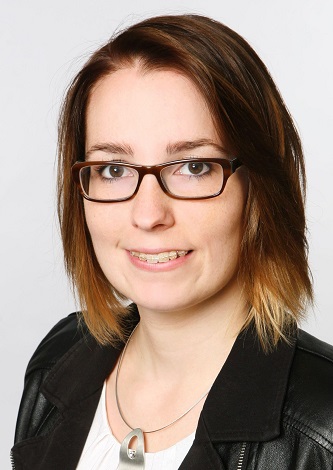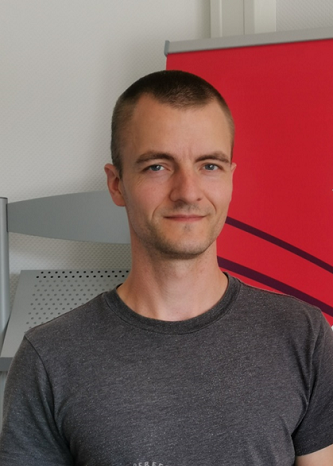Women in Early Phenomenology: An Introduction to Gerda Walther and Hedwig Conrad-Martius
Course Leaders: Julia Mühl-Sawatzki and Dr. Daniel Neumann (Paderborn University)
Dates: Wednesdays 4th Oct, 11th Oct, 18th Oct, 25th Oct 2023
Time: 5:30-7:00pm (BST)
Location: Online (Zoom)
Registration is now closed
Course Summary:
The aim of this course is to explore some of the lesser-known or even forgotten women in early phenomenology. Many women in early phenomenology were established intellectuals who contributed greatly to the field, yet their contributions and developments remain unacknowledged and overlooked today. In this course, we will examine two distinct early phenomenologists who both studied with Husserl. The course is divided into two parts. The first component focuses on Gerda Walther and will take place in weeks one and two, led by Julia Mühl-Sawatzki. In weeks three and four, Daniel Neumann will lead an exploration of Hedwig Conrad-Martius’ phenomenology of reality. Below are summaries of each part of the course:
Gerda Walther (1897-1977) studied with Pfänder in Munich and Husserl in Freiburg and was interested in phenomenology, psychology, and parapsychology. Although she is considered a lesser-known phenomenologist today, she was not an unknown figure within the phenomenological movement at the beginning of the 20th century. She contributed to the phenomenological movement with her inaugural lecture at the founding of the Freiburg Phenomenological Society in 1918, whose audience included Husserl, Heidegger, and Edith Stein, and with her dissertation Toward an Ontology of Social Communities. The first part of the course aims to provide an overview of Walther’s position within phenomenology and to explain and discuss her concept of social communities.
After studying phenomenology with the likes of Geiger in Munich, Hedwig Conrad-Martius (1888-1966) moved to Göttingen to study with Husserl where she became an important member of the circle of early phenomenologists. Her phenomenological focus can be described as twofold: Firstly, how does reality (understood as independently existing entities) appear? Secondly, how are real things structured in themselves? To address these questions, Hedwig Conrad-Martius developed a unique method of eidetic analysis, which we will consider both in terms of its epistemological and its metaphysical aspects. We will discuss this topic in the second part of the course, focusing mostly on two of her early works: Regarding the Ontology and Doctrine of Appearance of the Real Exterior World (Zur Ontologie und Erscheinungslehre der realen Außenwelt) and Realontology (Realontologie).
Course Outline:
Week 1: Gerda Walther as a student of Husserl and Pfänder [Part 1]
Week 2: Walther’s Concept of Social Communities [Part 1]
Week 3: Introduction to Conrad-Martius and her phenomenology of sensual givenness [Part 2]
Week 4: Realontology: The structure of reality according to Conrad-Martius [Part 2]
- While specific texts will be referenced and discussed each week, there will be no compulsory reading due to a lack of translations. The original German translations will be made available, but it is not necessary to engage with them to follow the course.
- For those who cannot attend a week, there will be a video recording available for 7 days.
- Links to Zoom will be sent out a couple of days before the course starts.
Course requirements:
- No course requirements.
- There are a limited number of places for the course – see ‘Registration’
Course leaders:
Julia Mühl-Sawatzki writes her dissertation on Gerda Walther’s concept of social communities.
From 2016-2021, with parental leave interruption, she was project coordinator of the Center for the History of Women Philosophers and Scientists under the direction of Prof. Dr. Ruth Hagengruber at Paderborn University (Germany).
She has given lectures and written papers on such topics as Walther’s concept of social communities, inner joining, and the ego and specializes in early phenomenology and social ontology.
Dr. Daniel Neumann is Research Fellow at the Center for the History of Women Philosophers and Scientists at Paderborn University in Germany.
He has lectured and published on several protagonists of the early phenomenological movement, including Hedwig Conrad-Martius, Edith Stein and Alexander Pfänder, as well as on the Early Modern Rationalism of Descartes and Spinoza. Daniel is particularly interested in the connection between phenomenology and realism, and the metaphysical implications of this relation.
Recently, he has hosted a talk series on “Phenomenology and Metaphysics” and organises an international conference on “Phenomenology, Reality and Essences” in November of 2023.
BSP Online Courses Overview:
The British Society for Phenomenology was founded with the intention of promoting research and awareness in the field of phenomenology and related philosophical ideas. Currently, the society accomplishes these aims through its journal (JBSP), essay prize, impact agenda, podcast, and events.
Online Courses are part of the BSP Events offerings. All courses will focus on phenomenological thinkers or topics and will be taught by experts in the field. Each short course has a total of six hours. The sessions will last 1.5 hours and are held once a week on Zoom, for four consecutive weeks. This will include a lecture and time for discussion / Q&A. Reading materials or any other course materials will be provided in advance.
The BSP is a not-for-profit organisation and fees charged are to help the society cover the costs of its events, podcast, journal, etc.
Course Fees:
- To attend BSP Events, including our Online Courses, you need to be a member of the BSP.
- For BSP members our online courses cost £25, or a concessionary rate of £15 if eligible. Concessionary rates apply if you are a scholar who is emeritus, independent, student, unwaged, or has financial hardship (including low income, temporary contracts, etc.).
- Non-members can join the BSP and become members to attend a course. The membership fees are £40 per year for a standard membership or £20 for concessionary membership. Once again, concessionary rates apply if you are a scholar who is emeritus, independent, student, unwaged, or has financial hardship (including low income, temporary contracts, etc.). In becoming a member you can attend any of our courses, conferences, or other events during your membership year without having to pay membership fees again. In addition, you will also receive a year’s subscription to the Journal of the British Society for Phenomenology accessed through the portal at Taylor & Francis Online. There are four issues a year, plus you have access to our archive with 50+ years of articles. Details on membership, and how to join, can be found here. You can either join in advance of signing up for the course, or as part of registering for the course.

Registration:
As advertised, registration closed at midnight Wednesday 27 September 2023.
More Information:
If you require more information about the course, please contact Zoe Waters, BSP Chair of Online Courses via [email protected] or [email protected]


